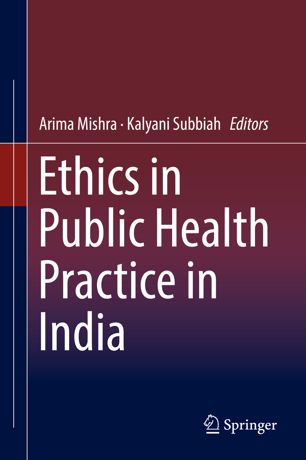

Most ebook files are in PDF format, so you can easily read them using various software such as Foxit Reader or directly on the Google Chrome browser.
Some ebook files are released by publishers in other formats such as .awz, .mobi, .epub, .fb2, etc. You may need to install specific software to read these formats on mobile/PC, such as Calibre.
Please read the tutorial at this link: https://ebookbell.com/faq
We offer FREE conversion to the popular formats you request; however, this may take some time. Therefore, right after payment, please email us, and we will try to provide the service as quickly as possible.
For some exceptional file formats or broken links (if any), please refrain from opening any disputes. Instead, email us first, and we will try to assist within a maximum of 6 hours.
EbookBell Team

0.0
0 reviewsThis edited volume draws on ten original contributions that locate ethics at the centre-stage of public health practice. The essays explicate ethical issues, challenges, deliberations and resolutions covering a broad canvas of public health practice including policies, programmes, research, training and advocacy. The contributors are academics and practitioners in varying roles and long-standing engagement with public health in diverse settings within India. Their expertise in disciplines range from anthropology, sociology, health communications, gender studies, economics, epidemiology, social work and medicine. Their chapters deal with dimensions of ethical dilemmas that can rarely be defined and contained within ethical guidelines and protocols alone. Instead, they throw light on the associated factors, value systems and contexts in which such complexities occur and require response or redressal. This volume aims to articulate the growing awareness among practitioners that public health ethics is not merely an advanced grouping of possible problems and solutions. It hopes to facilitate robust platforms for dialogue and debate on the subject through the lenses of these contributions. The book is conceptualized to reach broader audiences such as public health practitioners and researchers in several roles within Government health systems, NGOs/Grass root organizations/CSR initiatives/advocacy groups; as well as researchers in academic settings and facilitators involved in teaching ethics and imparting training for students and young practitioners of public health.